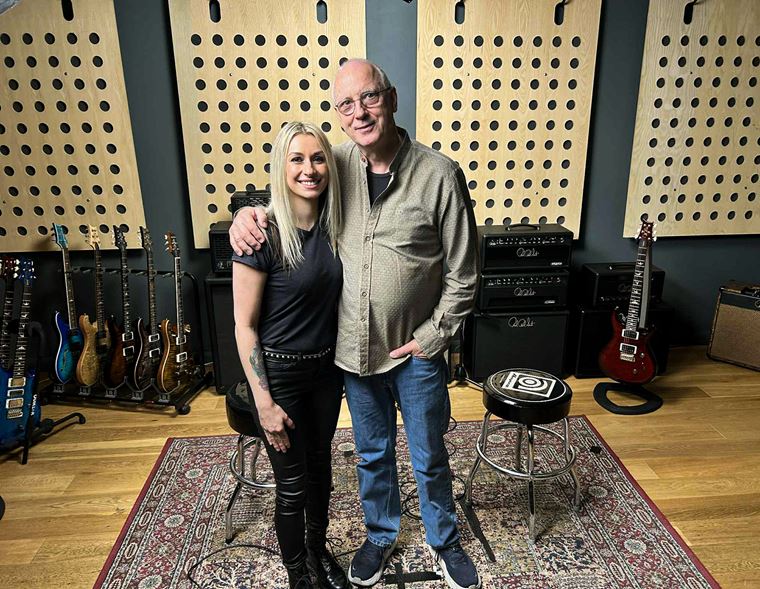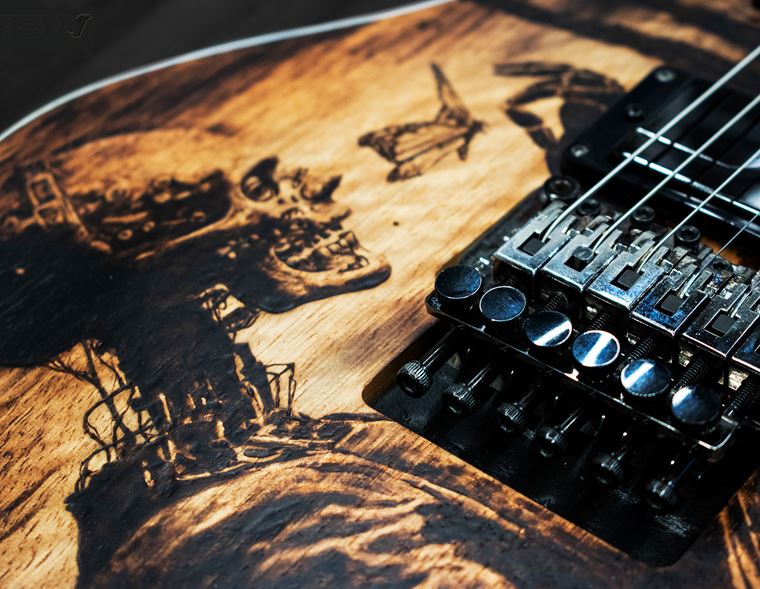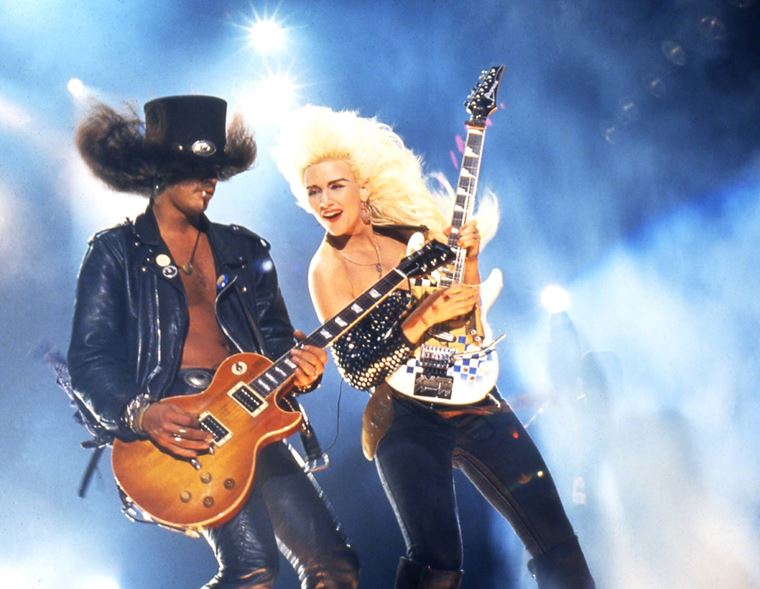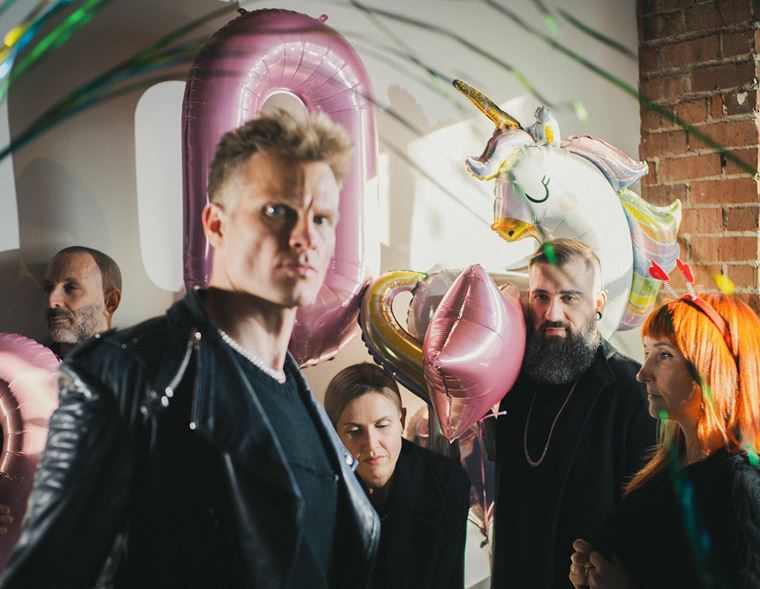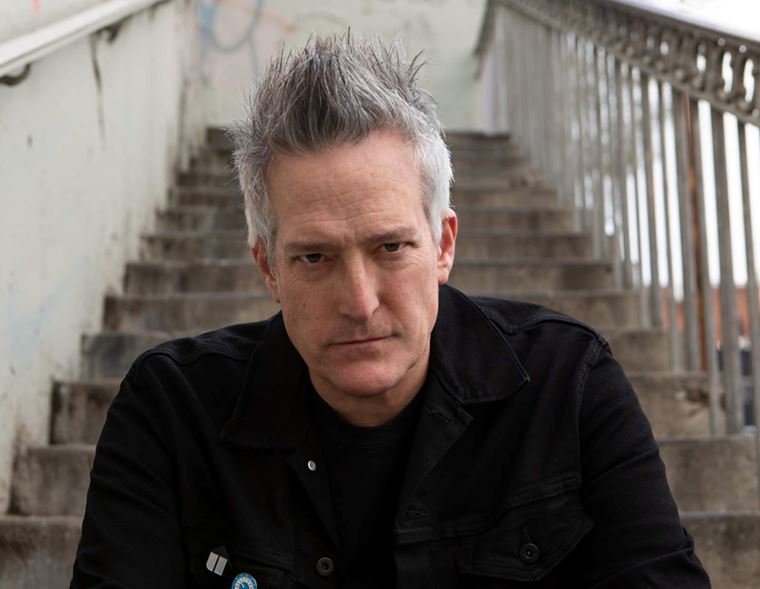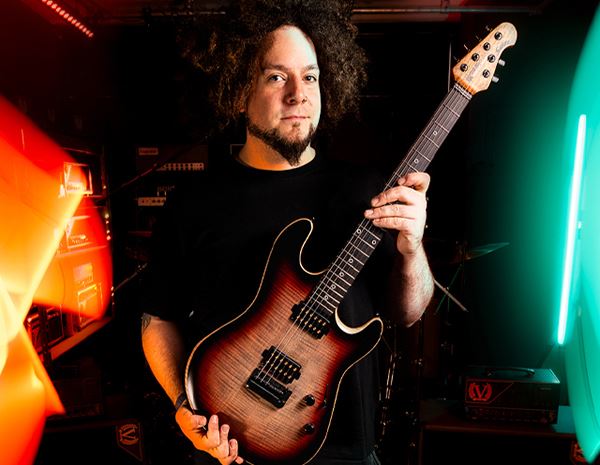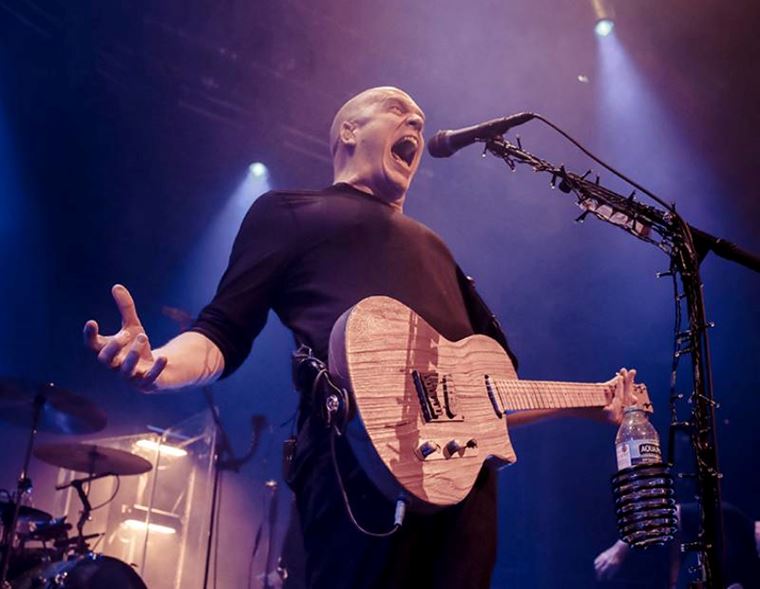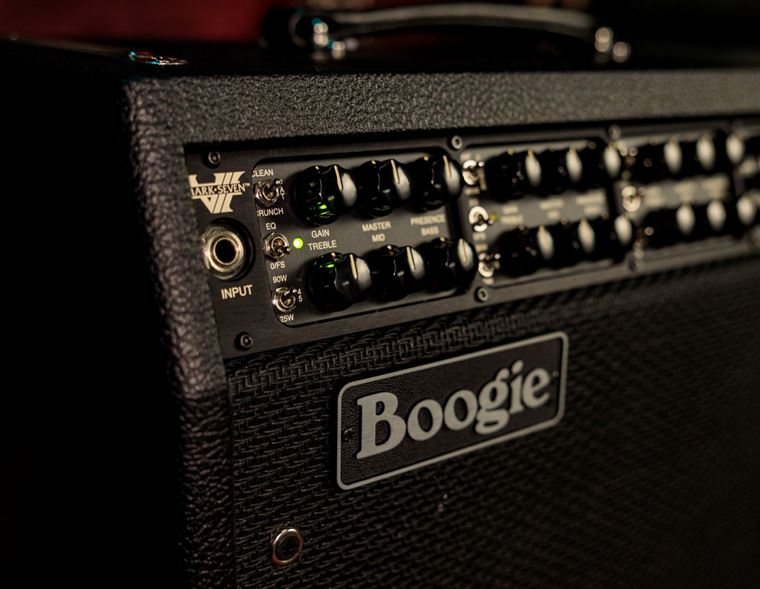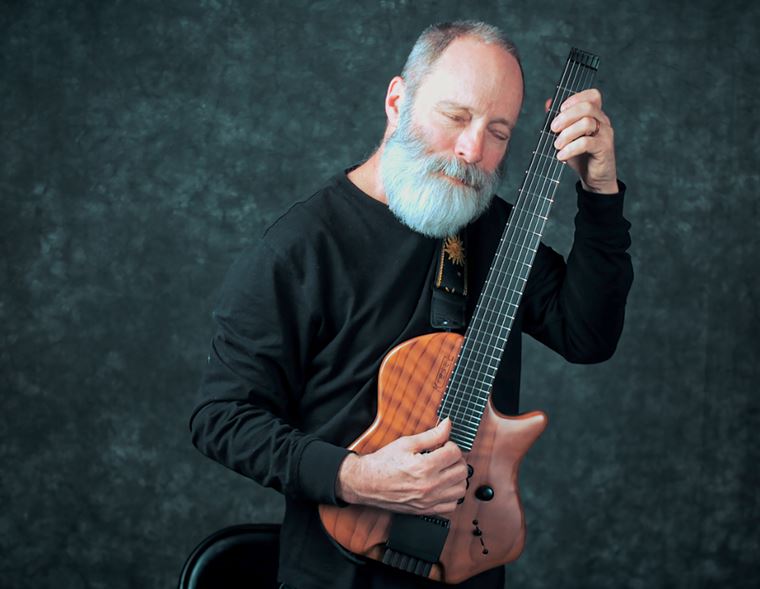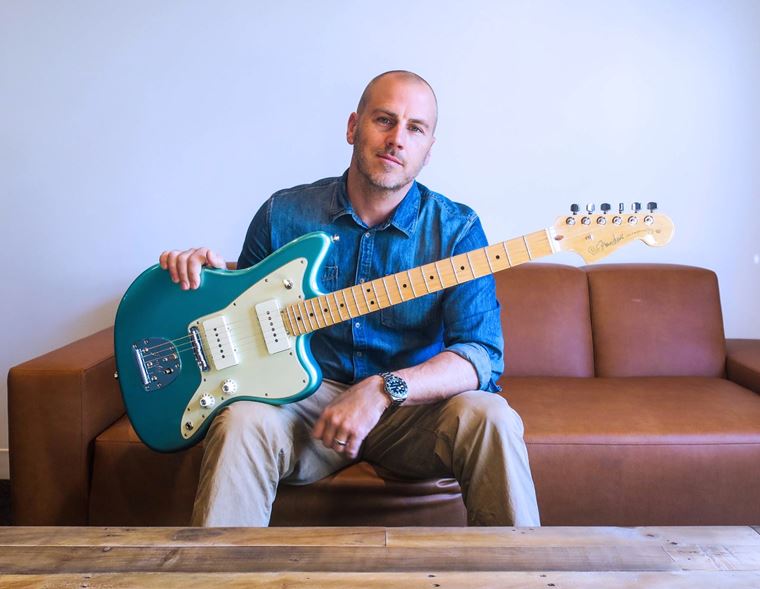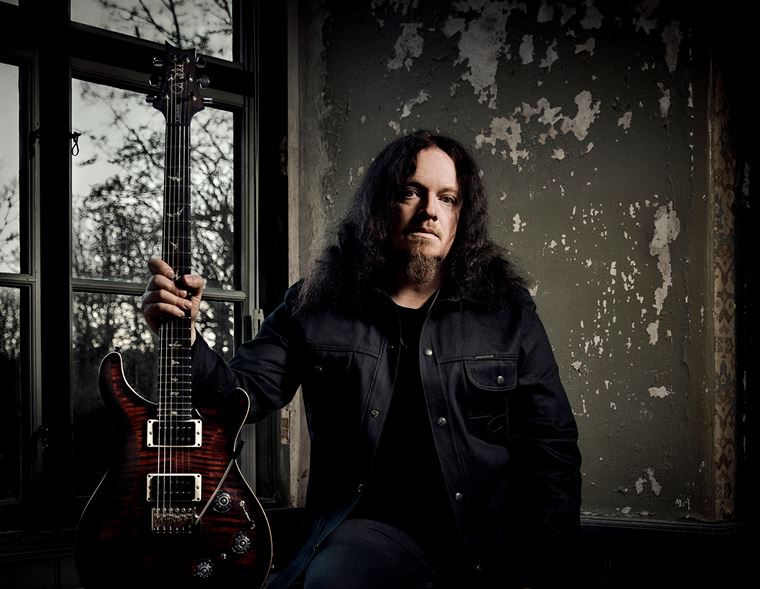The NINTH WAVE get back to Gigging!
That feeling of going out on tour is always a uniquely exciting one.
A different town or city every day, late night laughs in a van or a small bus, living out of a rucksack, and unleashing load torrents of rock voltage every night for a week or two: there’s nothing else like it! You meet all kinds of new people, overcome all kinds of random problems and, bandmates in tow, write your own history with every step. It can be a grind, but a triumphant one.
That’s all been a far-off dream for us musicians, these last few lockdown years. Now, however, things are starting to open up again, and touring is becoming a realistic prospect for many artists. Venues, promoters, crew and musicians have all struggled: some didn’t make it at all, and all of us are in one way or another changed by the collective experience.
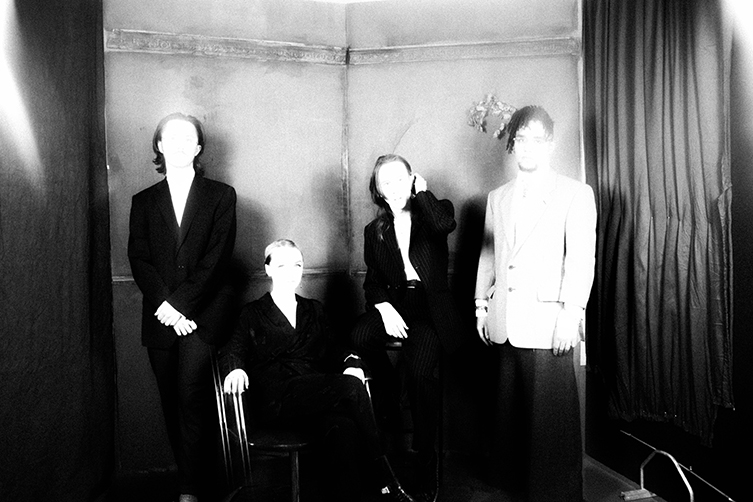
It feels good, then, to see posters for the Ninth Wave’s upcoming (read: right now) tour flashing big ‘sold out’ signs across several of the dates, including two nights at Glasgow’s famous venue the Oran Mor. We thought it was high time we found out more about this exciting, kinetic band, who are ticking all the right boxes for so many people! Recently, we managed to get on the phone with lead vocalist and guitarist Haydn Park-Patterson to discuss how the band are getting back to gigging, along with the importance of videos, good management and reliable amplifiers!
Guitarguitar: So, selling out two nights at the Oran Mor! Did you expect that kind of response?
Haydn Park-Patterson: Not really, no! It always takes you by surprise when you sell out somewhere, even when it is in your home town. We sold out our last proper headline show at St Lukes (another Glasgow venue) but obviously, after everything (covid lockdown etc), we’re like: are people still up for coming out? So yeah, it was really good to sell that out and get that confirmation that everyone’s still into you! (laughs)
GG: Of course! And are these shows normal capacity or kinda covid-restricted?
HP: No, gigs are now back to normal. We are doing these gigs as, like, ‘a seated affair’. We’re going on tour next week in England and then we’ve got a couple of dates in Aberdeen and Dundee and they are all normal gigs, like full-pelt: normal, sweaty, packed-in venues. But Oran Mor is gonna be a bit different. We’ve got some special things planned, some extra musicians with us, so we wanted it do have a different vibe to a normal show. We just wanted it to be a seated thing so that people could really get into it and not have to worry about people jumping around at the front, and they can properly zone in on the new arrangements that we’ve been working out.
We’ve been in the studio so much. Basically, we’ve been rehearsing for two different sets: the proper tour set and then the Oran Mor set because they are two entirely different things. So yeah, it’s gonna be good!
GG: Right! Now, presumably you don’t want to give too much away before the shows, but are there any more details you can share about these seated shows?
HP: We’re gonna have two drummers. We’ve obviously got Callum, but one of our pals is gonna be playing another drum kit. There’s gonna be some saxophone, some violin, some trumpet, some different arrangements of the songs. We’re doing it on two halves, so it’s gonna be...well, we’ll see!
GG: Okay! Say no more! The shows are sold out anyway, I suppose!
HP: Yeah, they’re coming whether they like it or not! (laughs)
GG: Exactly! Yeah, so I love the new video for Pieces and Coins, with the wolf. How important to your band have you found video content to be?
HP: It’s an important element, definitely. It adds another dimension to the songs, and the meaning behind the songs as well. For that video and the one before, we worked with a director we’d worked with before, Rhianne White. She’s really amazing. We just basically gave her the title of the songs, the lyrics and told her a bit of what the songs were about, then she came back with the video concepts. So, it’s from her mind, but inspired by the songs, which is good, because it’s always a sort of collaborative thing between us and whatever directors we like. We’ve worked with Brian Ferguson before, he’s another director from Glasgow. Whoever we normally work with, we leave it up to them to sort of get the full concepts of the video together but keep to what the songs are about.
GG: In terms of – I hate to use the word ‘team’, because it makes it sound very premeditated – but, outside of the band members, do you guys have specific people involved? Bands today obviously have to do so much more themselves. Do you have go-to people like management, agents, stylists, social media people?
HP: Hamish, our manager, has been here since the start. For the whole life of the band, me and him have been the only ones from the very start that are still around. But yeah, apart from that, we have a radio plugger and press people, stuff like that, but even still, they’ve changed a couple of times. Apart from that, we just work with people when we like what they do. If there’s a director we like, we just work with them again and again, like Rhianne. So yeah, there’s the band and then Hamish and apart from that, we just kind of choose people we like who are up for working with us.
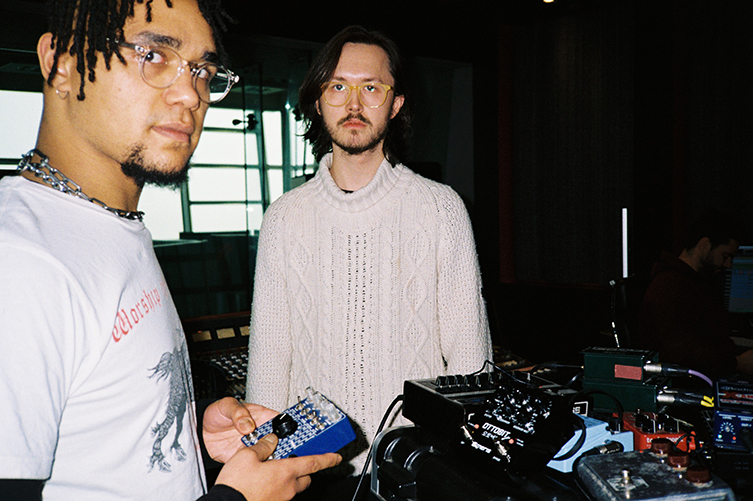
GG: That’s interesting, that whole thing with Hamish. He’s your manager and he’s been with you since the start: that’s probably quite unusual for bands. Did that just happen naturally?
HP: Yeah, it’s been quite a nice thing, really. I think we worked out the other day that me and him have been doing stuff together for 6 years. He saw us 6 years ago when it was me, my brother, my cousin and another person called Lena, who I went to Uni with. He happened to be at one of our first Glasgow gigs, part of an all-day gig for Record Store Day. He saw us and was like, ‘Ah, fuckin’ hell, youse are cool!’ He had a solo thing called Roxy Agogo, and was one of the artists I thought was amazing when I was just getting into music in Glasgow. He came up to us after our gig and said our band was cool. The day after, I just happened to be in a pub and he gave me a message saying ‘Are you downstairs in the Rum Shack?’ We ended up spending that night chatting about music and stuff. From then on, he was spending less and less time being in a band. He didn’t start off being our manager, he just started off helping us, being I guess like a mentor, almost. It grew into him being our manager and it’s got to the point where he’s got his own company and he manages us, Lucia and the Best Boys and Walt Disco. So, it’s been a kind of natural thing and we’ve both made it to where we are together, if you get me. He’s not some random guy who wanted to manage us one day.
GG: Yeah, it sounds like a nice, synergetic relationship.
HP: Yeah.
GG: Does he look after a lot of what I might refer to as the ‘shit’ bits of being in a band?
HP: Yes. (laughs) Yeah, we’ve bought him a couple of bottles of whiskey over the years for all the time he’s spent on us, doing all the stuff that no one wants to do, but someone’s gotta do! He’s good at that!
GG: Every band needs a Hamish! That’s amazing. Given that you’re the lone member from the start, I presumed that you’d be the main songwriter. Is that still the case?
HP: Yeah, I mean, throughout the first album, it was mostly me writing the songs, and then me and Millie started to write a bit together. After that, we were all just starting to write independently. It used to always work that I would write a song and bring it in to them, then we’d all just tear it apart and make it into a band song. It started off as a demo that I’d do in my bedroom. Then it got to the point where all four of us were doing that independently and then bringing the songs in, so its evolved a lot.
For example, the first track we put out on the Happy Days EP started off as one of Callum’s demos, then I put some words to it, then he had some words. It was quite a collaborative process, which was weird because I’d never been used to that! There’s no set way of doing it, basically. There are some songs on our next release that are just songs I’ve written that we’ve all played on, and then there’s songs that we’ve all written together as a band.
GG: Okay! The Ninth Wave have a good blend of sounds: there’s guitars, synths and a lot of bass. Does everyone play a bit of everything in terms of instruments?
HP: Yeah, well that’s the thing: there’s no set rules within the band. Live, there is: we all have our things that we do live, but when we’re writing and recording, it’s much more fluid. I can’t remember the last song I wrote on a guitar. They’re all written on piano, normally, and then they’ll get transferred and we’ll write parts for each of the instruments.
GG: Do you find, when you’re writing for the piano, if you then have to play that stuff on a guitar, can it be a problem in terms of voicings and stuff? What works on a piano sometimes doesn’t translate, you know?
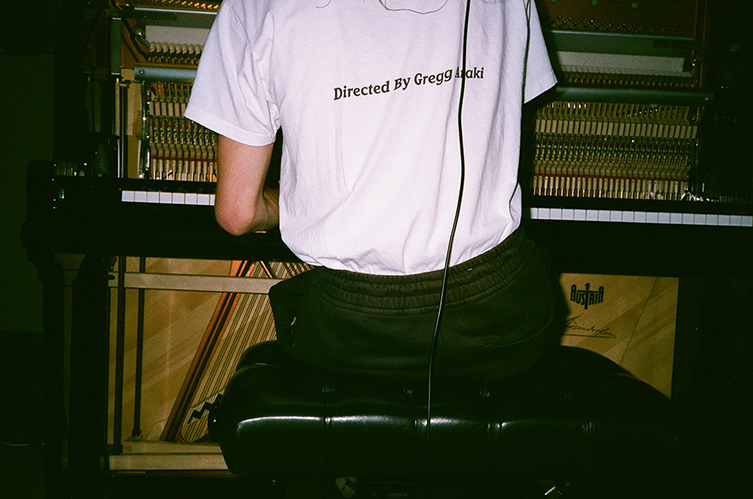
HP: No, not really! I think, because, well, I’m quite shite at the piano, the parts are quite simple anyway! (laughs) There’s a lot to work with, I guess, and when it’s getting changed over to guitar or whatever, it’s quite easy.
GG: Haha, fair enough! Now, obviously, all musicians have influences. In terms of writing, who are your main influences?
HP: When I was a bit younger, I definitely took a lot of influence from 80s bands like Simple Minds, The Cure and stuff like that. As we’ve gone on, our influences have gotten much broader and the thing about is we’re all now doing bits of writing, and we’re all into quite different things. There’s a lot of stuff that we all like, but there’s a lot of things that I guess are quite particular to our own tastes. That definitely comes through, more so in our next release. You can really hear that there’s a lot of stuff going on in terms of where we’ve taken influences from. I think our sound is a product of...not not knowing what we’re doing, but kind of experimenting and recognising what works. It’s quite a...I don’t know quite how to word it, it just happens, I guess.
GG: Yeah, I understand. With everybody writing, not everybody is going to like everybody’s ideas, and there’s only so many songs that will fit on a release. How do you all work around that? Do you have final say, as the longest-serving member?
HP: We basically just make a big playlist of all the demos and listen through them. We’ll try to be as cut-throat as we possibly can, looking at it not from ‘who wrote the song’, but purely as, ‘Is this one good? Yes or no’ and that’s it. We try to be as straightforward as we can. ‘Is this song a song that works for this band?’ If it is, then cool, it doesn’t matter who has written it.
GG: That was another thing I was wondering, in terms of writing for the band. Do you write songs that you then think to yourself, ‘actually, this really isn’t a Ninth Wave song’?
HP: Yeah, (laughs) a couple of those songs have ended up being band ones, which is funny. I do quite a bit of poetry and spoken word stuff. Before Covid and everything, I was getting quite into spoken word performances, and there’s a couple of songs that are spoken word on top of music. When I wrote those, I thought they were obviously not Ninth Wave songs, but then, as other songs started coming through and we started building a collection of work, we thought, ‘actually this will fit!’.
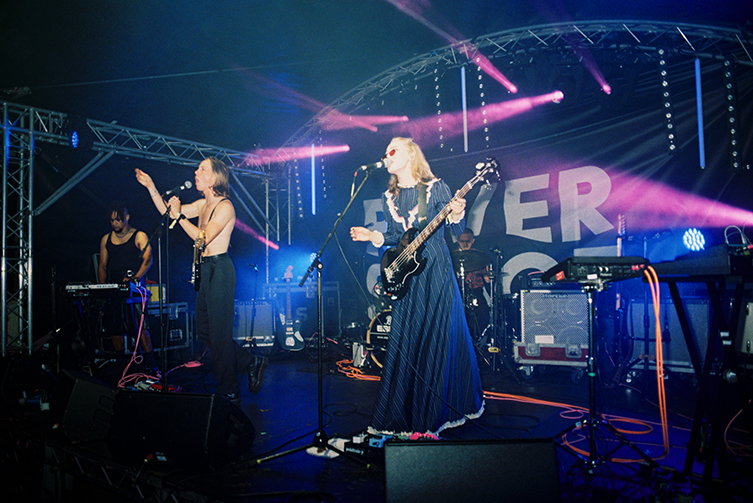
So yeah, we all definitely write stuff that isn’t necessarily gonna fit the band. That’s where it’s good to also have other outlets to do that stuff. Callum is playing his first solo gig tomorrow night, he writes a lot of stuff, but a lot of it don’t necessarily fit the band. That’s where it’s good that we can all do stuff on our own as an outlet for that. I think we all do that. We do the band, but we’re starting to branch out on our own, which is nice: it’s good to be able to do that.
GG: Yeah, it’s healthy. Now, it’s guitarguitar so we need to get some guitar chat in!
HP: Definitely!
GG: I noticed you play a Burns?
HP: Yeah! Actually, it’s a Baldwin, but it was made at the time when Baldwin – who I believe are an American company – bought over Burns, so my guitar was made at that time, when they were using all the old Burns parts. It’s branded Baldwin but the pickups say ‘Burns’. It’s a bit of a weird one.
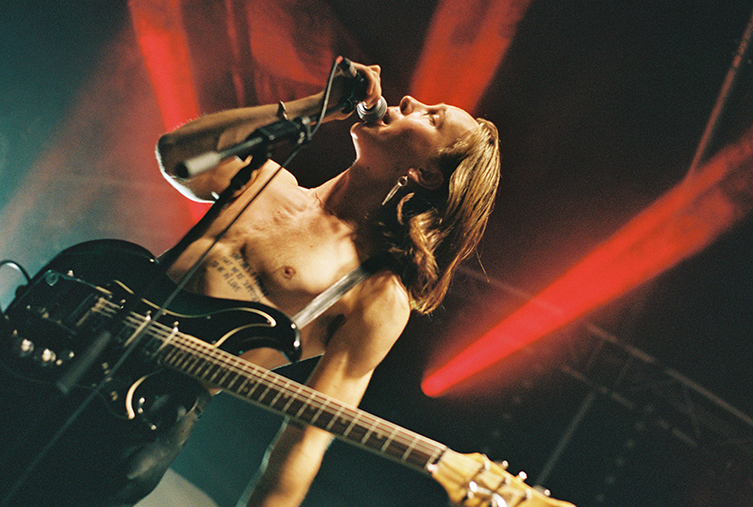
GG: Is that quite an old one, then? Like, the 70s?
HP: Aye, I can’t remember exactly how old it is, but it’s an old one! Hamish used to play one, but there’s someone else as well who used to play one and I thought, ‘fucking hell, that’s such a cool guitar’.
GG: I did not know that Baldwin thing!
HP: Yeah!
GG: Baldwin also had the license for Gretsch, which I learned from a good source (learn about this here with our Billy Duffy interview). So, what else do you use in terms of pedals and amps, that kind of thing?
HP: I used to use a Selmer Treble & Bass, which is an old British thing from the 70s but it’s a bit temperamental. I toured with it once and realised I can never do it again (laughs) because it is so fragile. I think I made it two gigs and then I was on to the backup amp because it just died. I got it fixed, but it’s started doing it again, plus it gives me electric shocks when I’m singing in the microphone! It’s stinging my lips because there’s something wrong with the grounding in that amp, basically.
So yeah, that one’s away in its flight case just now and I’ll fix it when I can. Now I’m using a Fender Hot Rod Deluxe. I used to play a Gibson Melody Maker, one of the white ones with just the single coil pickup in it, I don’t know if you know the one?
GG: I know it well, yeah.
HP: Yeah, our old publicist let me borrow it but he moved away to Australia and he gave the guitar away and I really missed it! I managed to find one on eBay for a really fucking good price, so I’m actually picking that up next week when we’re down in London. I’m excited to get that!
GG: Oh, nice man! That’s awesome news! So, what about pedals? Do you get into that or just keep it simple?
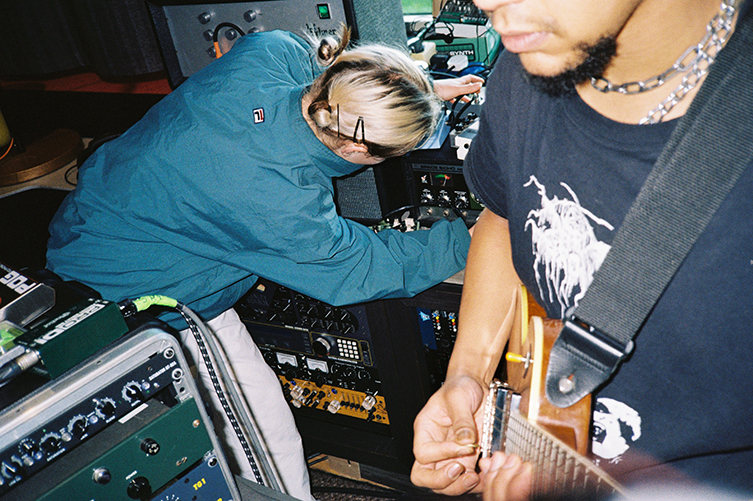
HP: I keep it relatively simple. I actually just got a Digitech Whammy, which has been much more useful than I thought it was gonna be. I wanted and octave pedal for just adding a shimmery sound to some of the parts, and I thought it was gonna be one of those pedals were you go, ‘Pah! That sounds funny’, but I actually use it quite a lot, it’s really good.
GG: Does your Whammy have the Detune effect on it?
HP: It does, yeah, the sort of Chorusing effect. Normally they’re not very good at tracking the chords but this is the one they added the chord function to (Whammy V – Ray). I just always have it on that, because a lot of the parts need that. So, I’ve got that and I’ve also got the maddest fucking pedal I’ve ever used – and we’ve actually put a lot of synths through it as well – it’s one of the old Electro Harmonix Micro Synth pedals, the big one.
GG: I love the Micro Synth so much.
HP: When you turn it on, it’s just like...chaos! It sounds mad. It’s a good one to have, I’m glad I’ve got it. And then just reverb, chorus, delay. At the moment I’m using an OCD for some overdrive and an MXR Micro Amp, which I’ve had since I was 14. I still use that. But yeah, that’s basically it for me. Callum’s setup is pretty mad. You know the Behringer synths they make that are really good and really cheap?
GG: Yeah man!
HP: He uses one of them, I think it’s a copy of...I can’t remember what it’s meant to be. It’s called the Model D.
GG: Oh yeah, it’s the Moog Model D.
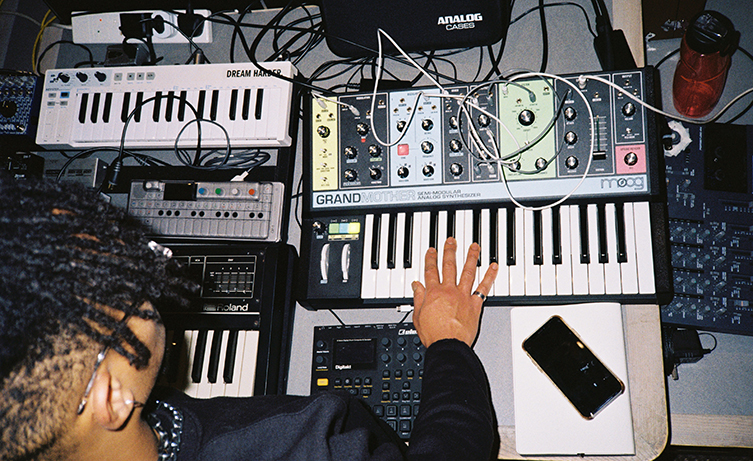
HP: Ah, yeah. That synth is honestly amazing, it’s all over our new stuff. It’s fucking amazing. Yeah, he’s got that and a few other bits. Kyalo uses the Teenage Engineering OP-1, he uses that a lot and he’s also got their OP-Z as well. For a while he was using Hamish’s old synth, the Roland SH-1, one of the really, really old ones, the black one.
GG: Another classic synth!
HP: It hardly ever works! So he used that for a bit. Same deal as the Selmer, they’re too unreliable to take on tour. Then Millie’s got the SG bass, which sounds fucking huge, and an Ampeg head. She just got a Bass VI as well, the Squier thing.
GG: That’s instant Robert Smith, isn’t it?
HP: Yeah! Oh, it’s amazing. There’s one new song we’re playing on this tour, and I’m playing that. It sounds like a bass but I do a solo on it. We were like, ‘Oh my God, is there a bass solo in one of our songs now?’ (laughs) It’s so uncool but it sounds really amazing. I’ve got the Bass VI going through my chain, and the Hall of Fame Reverb is at the end of my chain, so there’s an output from that going to my amp, but also an output going to Millie’s amp, so for that one song, it sounds like the world is ending.
GG: Wicked man! And you know what else you can do? You can use the Whammy pedal to add extra octaves, too!
HP: Oh yeah, I‘ve got that on! I’ve got the Whammy on, the Micro Synth, the OCD...or yeah, I’ve another one: a D.O.D. pedal, the Carcosa fuzz. It’s so nasty! I’ve got that on as well. That one song in the set is painfully loud, it’s amazing.
GG: That’s how to do it!
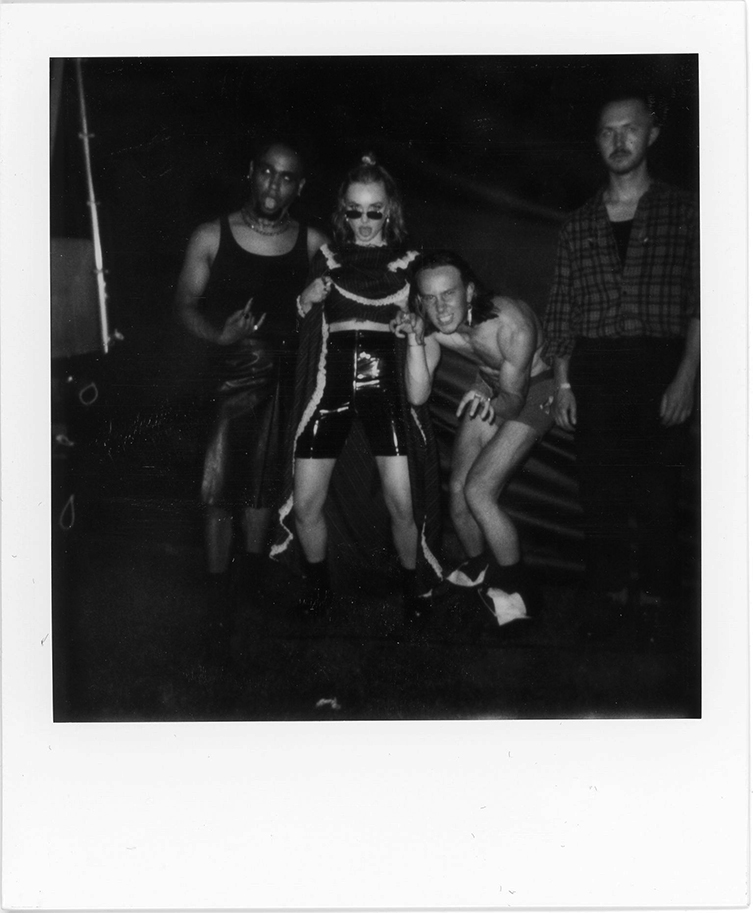
HP: There’s a lot going on, and it’s taken us a while to get the right sort of setup for what we need live, but I think we’re there now.
GG: Excellent. I take it rehearsals are going well for the tour?
HP: Yeah, we’re all pretty busy right now doing other stuff as well, so we’re just trying to rehearse every spare bit of time that we’ve got. It’s been good, it’s been nice to do that again.
GG: Absolutely. Presumably you guys all have day jobs you have to do: do you ever find it difficult to fit the band around it?
HP: A little bit. It was quite easy over lockdown and everything, because everyone was on furlough. When we were allowed to start rehearsing again, we had quite a lot of time. But, all of us have always had jobs, so it’s just something that we’re used to. Fitting it all in, basically, like most people in bands and stuff. That’s what they do: it kinda goes with it. You’ve got to have a job on the side to keep you afloat.
GG: Yeah, you don’t go on holiday, you go on tour.
HP: Exactly, haha!
Sounds like it’s going to be a fun tour! Whichever show you catch, it’s guaranteed to be intense, fun and loud! We’re looking forward to The Ninth Wave’s new release, but in the meantime, you can find out everything you need to know from the official Ninth Wave website.
We completely forgot to get clarity as to the origin of the band name, though if it comes down to a guess between the Kate Bush suite of songs from Hounds of Love or the semi-mythical colossal wave in surfing lore, we’re going with the former. Though thinking about it, it could easily be either...
We’d like to thank Haydn for giving up some of his precious downtime to chat to us. We’d also like to thank you for reading this interview! Find a great many more by clicking through to the guitarguitar interviews page, and we’ll see you back here soon for some more.
Until then,
Ray McClelland

